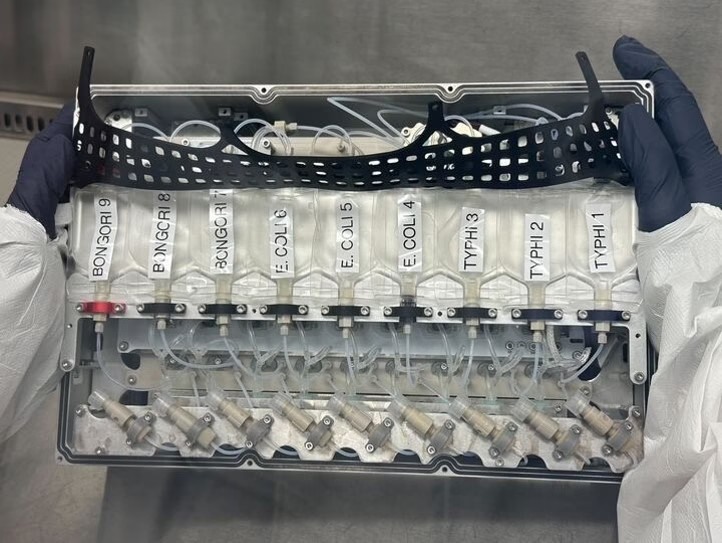-
info@forensicss.com
Send Email
-
11400 West Olympic Blvd, Los Angeles, CA 90064
310-270-0598
Confidentiality Guaranteed
310-270-0598
Confidentiality Guaranteed
Blog Details
-
ForensicsS | Private Detective & Digital Forensics Investigation Experts > News > Uncategorized > NASA’s most up-to-date mission to the ISS aspects a bacterial experiment

Aug
NASA’s most up-to-date mission to the ISS aspects a bacterial experiment
OSINT
Scientists are sending just a few lines of disease-causing bacteria to the Global Dwelling Field as a part of the Crew-11 mission. This experiment isn’t very the tell to some tacky awe movie, but a scientific investigation from the Sheba Scientific Center in Israel and the US-basically basically based firm Dwelling Tango with the goal of higher conception how bacteria spread and behave below low stipulations. The experiment entails E. coli, along with bacteria that contrivance off diseases love typhoid fever and the infection frequently identified as Salmonella.
After reaching the ISS, the experiment will designate the diversified bacterial species develop earlier than being returned to Earth to be examined in opposition to counterparts that were grown simultaneously in an identical lab below extraordinary stipulations. The experiment’s results will succor scientists realize how bacteria answer to zero gravity and would possibly presumably succor astronauts, who’re extra at likelihood of infections right thru missions attributable to emphasise, exposure to radiation and adjustments in gravity. Then all but again, the examine would possibly presumably display invaluable beyond condominium missions. With the onset of superbugs that display antibiotic resistance, the experiment would possibly presumably bid ways to combat extra sturdy bacterial lines.
“This experiment will allow us, for the first time, to systematically and molecularly map how the genetic expression profile of several pathogenic bacteria changes in space,” Ohad Gal-Mor, head of the Infectious Diseases Examine Laboratory at Sheba, said in a assertion.
The scientific center previously conducted a take a look at with bacteria in simulated condominium stipulations, which confirmed a diminished ability to build antibiotic resistance, but the most fresh experiment is the first one to happen on the ISS. It is miles not the first time scientists score studied bacteria’s behavior in microgravity stipulations, since researchers from the College of Houston examined how E. coli would develop in a simulated condominium ambiance support in 2017. More not too lengthy ago, NASA launched an experiment tasking astronauts to swab the interiors of the ISS and take a look at them for evidence of antibiotic-resistant bacteria.
Recent Posts
- How online casinos provide protection to against RNG hacking
- NBA Publicizes Investigation In opposition to Shai Gilgeous-Alexander’s Suppose Before Lakers Game
- Trump bashed Epstein to Palm Seaside police all the blueprint thru first investigation, known as Maxwell ‘low,’ file reveals
- Chuck Todd Says Ancient Colleague Savannah Guthrie Will Solve ‘Heartbreaking and Surreal’ Mystery of Lacking Mother | Video
- FBI says it’s unaware of Savannah Guthrie talking alongside side her mother’s suspected kidnappers



